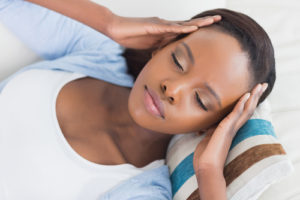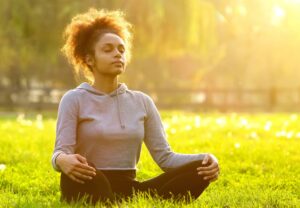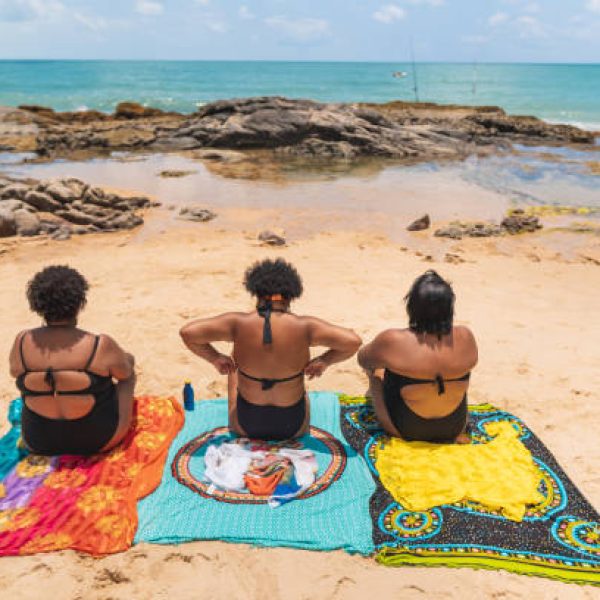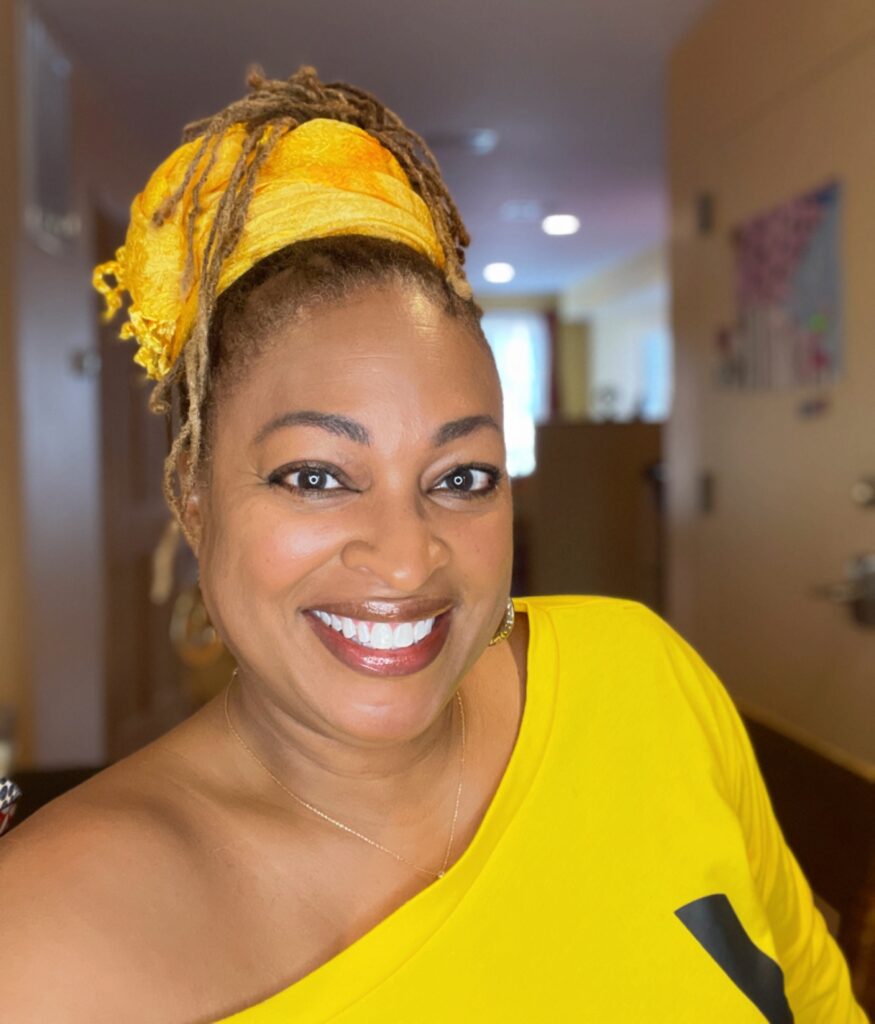Soft Life and Black Women’s Wellness
This is a comprehensive guide for black women to the soft life, what it is, where it originated and what it entails. There are many different depictions of what a soft life can look like but in this case we are examining the soft life from the perspective of black women’s wellness.
“Wellness is a holistic and multidimensional approach to overall health and well-being. It goes beyond the absence of illness and encompasses various aspects of an individual's life, including physical, mental, emotional, social, and even spiritual dimensions. Wellness is often viewed as a dynamic process of actively pursuing activities, choices, and lifestyles that lead to a state of holistic health.”
~OpenAI, 2024
For black women, several key components of wellness have been historically neglected, often for the purpose of survival. This is a fairly recent widespread concern, as numerous studies indicate that the overlooked aspects of wellness are causing great harm to black women’s individual and collective well being. We are realizing that hustle culture, diet culture and wellness culture are mostly to blame.
Soft Woman Lifestyle: Black Women's Path to Holistic Wellness and Liberation
The Harm from Hustle Culture
 Hustle culture is a scam designed to have us breaking our necks and wearing ourselves down trying to get ahead of the game. In the workplace black women go way above and beyond, and are not properly rewarded for our efforts. It is like a continuous sprint on a hamster wheel. As black women ventured to start businesses, pursue higher education and thrive on a high level, stress has taken its toll, leading to burnout. Living softer means slowing down, getting back to basics and prioritizing rest and leisure.
Hustle culture is a scam designed to have us breaking our necks and wearing ourselves down trying to get ahead of the game. In the workplace black women go way above and beyond, and are not properly rewarded for our efforts. It is like a continuous sprint on a hamster wheel. As black women ventured to start businesses, pursue higher education and thrive on a high level, stress has taken its toll, leading to burnout. Living softer means slowing down, getting back to basics and prioritizing rest and leisure.
Diet Culture as a Tool for White Supremacy
Diet culture refers to a pervasive societal obsession with and emphasis on the pursuit of an idealized body shape or size, often linked to narrow standards of beauty. It encompasses a set of beliefs and practices that prioritize weight control, appearance, and restrictive eating habits as measures of health and self-worth. Diet culture can manifest in various ways, including the promotion of fad diets, the stigmatization of certain body types, and the normalization of harmful behaviors like extreme calorie restriction or excessive exercise.
Diet culture has existed for centuries but really began to take hold after religious zealot Sylvester Graham (the creator of the graham cracker) sought to tame the sexual appetites of Americans. He believed and taught that gluttony, lust, and materialism were making people physically ill. So, he constructed a completely and literally bland diet of fruits, vegetables and whole grains, no meat, spices or alcohol. Even black pepper was prohibited. The puritanical Graham diet attracted a cult of followers seeking to be pure and moral.
In the middle of the 18th century racist whites were on the hunt for pseudo science to support their claims of superiority over black and brown people, and used these manufactured moral codes as a tool.
“Inferior races have no self-control … because of how interested they are in sex and food. This was really the beginning of linking what was considered an unruly type of fatness to Blackness.”
~Sabrina Springs, Fearing the Black Body: The Racial Origins of Fat Phobia
Diet culture is oppressive to everyone. But it is particularly damaging to black women because it creates an artificial hierarchy of acceptable bodies of which black women are designated for a position at the very bottom.
Mainstream Wellness Culture is not Wellness
Wellness culture is an exclusive but also mainstream (white) model for various behaviors and purchases created in the name of health perfection. We need our own wellness spaces if we want to thrive. Searching for wellness online reveals pictures of very skinny white women doing yoga on mountaintops, stacks of rocks, candles and myriad expensive beauty products and treatments. What you will rarely see is happy black women.
What used to mean a subjective, unique holistic health is now overrun by a collection of trendy status-conscious habits that require bodily control, discipline and consumerism. Wellness culture, which is an extension of diet culture is a wildly profitable industry that promotes an endless pursuit of moral goodness. So of course, black women are excluded. Wellness doesn’t have to mean the same thing for everyone. For black women, wellness is soft living, which has been denied due to the unrealistic expectations of never ending service as caregivers and laborers (stereotypical beasts of burden).
Embracing the Soft Life
 When exploring the subject of the soft life it is important to present an attainable and healthy view of what a soft life entails, and how it can drastically improve quality of life.
When exploring the subject of the soft life it is important to present an attainable and healthy view of what a soft life entails, and how it can drastically improve quality of life.
If you search for images of the soft life you will find the internet is full of social media depictions of beautiful women luxuriating in expensive outfits in opulent spas or resorts, without a care in the world. Because soft living is highly subjective, this may be someone’s version of soft living but it may not be realistic nor enticing to others.
This post is for black women who want to create a joy-based healthy lifestyle, but that doesn’t mean that luxury and opulence should be ignored, but should not be mistaken for a complete view of the soft life.
What you can expect from this ultimate guide to soft living for black women:
- An understanding of what the soft life really is and how to define soft life for yourself
- A history of how this whole soft life came to be
- What to do to go deeper
The Soft Life is the Art of Living Well
The soft life is an intentional, holistic, liberated lifestyle that prioritizes overall health and happiness, while rejecting hustle culture, diet culture and wellness culture. It is characterized by normalizing daily pleasure, energy, sensuality, femininity, self confidence, self trust and self love.
For black women, the soft life is not just a social media trend, aesthetic, or a temporary era filled with bubble baths and positive affirmations. It is a path for sustainable, joyful healthy living.
Soft life is wellness. But the mainstream term wellness has been hijacked by diet culture and is therefore focused on wealthy, white, thin women. Wellness centering black women focuses on stress relief and happiness as a path to meaningful, sustainable health.
For more on the connection between the soft life and black women’s wellness, see LifeBliss Wellness Exhausted Black Women.
Rather than face creams and spa treatments alone, black women’s wellness, or soft living also include creating conditions for:
- Reduced stress and prevention of stress-induced chronic lifestyle diseases
- More energy, creativity and confidence to forge paths to abundance and satisfaction
- Balance (overall)
“Black women are tired. Tired from saving the world. Tired from saving our communities. Tired from saving our families. Now it’s time to save ourselves.” ~LifeBliss Lisa
A Brief History of the Term Soft Life
The term “soft life” can be traced back to social media accounts of young women social media influencers from Nigeria, describing a stress-free life of comfort and looking to escape bad luck and being broke. The context was about striving to live a soft life that is unencumbered by the inconvenient results of poor governance (unreliable public transportation, the erratic electricity supply, etc.) of the country. There is even a song about it.
So then there was this hashtag #softlife and people all over the world ran with it. On TikTok, the hashtag #softlife has more than 543.3 million views and #softblackgirl is hovering around 16.3 million.
The concept of a soft life has always been around. But more recently in the US, the realization that the strong black woman trope is causing harm to black women’s physical and mental health has influenced the soft life movement.
The strong black woman stereotype portrays black women as having superhuman strength and therefore also being denied basic humanity. There is truth in the quote:
“The most disrespected person in America, is the black woman. The most un-protected person in America is the black woman. The most neglected person in America, is the black woman. “
~Malcolm X
Researchers found that black women’s pressure to be a superwoman as a result of and to deal with racial discrimination and sexism causes the type of stress that results in chronic lifestyle diseases. Enduring daily microaggressions and larger traumas are stressors that directly resulted in poor health outcomes for black women. Black women have always been expected to suck it up and keep it moving and that has lead to long term harm. Chronic stress and the resulting chronic inflammation are two of the most influential factors negatively affecting health.
The coronavirus pandemic gave many the opportunity to really recognize the imbalance in their lives and the need to resolve it on an individual level more than any other time in modern history. It was both a stressful time and a time where everything slowed down or stopped and inadvertently became a time of re-evaluation and introspection and some idea of how fragile life is and the potential for something better. Creating and maintaining some level of peace became a higher priority.
Soft living is a direct answer to the unsustainable life resulting from the strong black woman stereotype. Enduring setback after setback, being marginalized and still functioning at a high level has taken its toll. Black women are seeking more rest, less stress, better health and more joy that a soft life provides. Soft life is not a matter of luxury, it’s a matter of survival, joy and an act of rebellion in a society not designed for black women to live well.
Caring for myself is not self-indulgence, it is self-preservation, and that is an act of political warfare.”
~Audre Lourde
For more about the negative effects of stress on black women’ health see this Essence article.
The Main Principles of Living a Soft Life
While writing the ultimate guide to the soft life I realized that there are drastically differing representations of it out here and there is a need to clarify some of the terms.
Sensuality
Sensuality is the connection of the body with the world through mindfully experiencing all 5 or 6 senses. Sensuality is not about sex, slinking around in sexy lingerie or trying to be seductive. Sensuality is awareness. Sensuality and pleasure are a form of spiritual nourishment for health and soft living.
Femininity
Femininity can be interchanged with feminine power, which is authentic, smart, creative, dynamic, liberated, flexible, resourceful, intuitive, natural, earthy, vulnerable (fearless/unapologetic, NOT weak) as a means to generate success and joy.
A society is patriarchal to the degree that it promotes male privilege by being male-dominated, male-identified, and male-centered. It is also organized around an obsession with control and involves as one of its key aspects the oppression of women. Patriarchy has made up so called feminine characteristics so that they could suppress, control and exploit women for obedience, undervalued or uncompensated labor and prioritization of their needs over ours. And then, people confuse these bullshit characteristics with actual feminine energetic power.
Self trust
Self trust is a firm reliance on personal integrity; being enough, or not needing external acceptance or approval. Self trust is the key to liberation, and the ability to be carefree.
Self love/self care
Self-love and self-care are intertwined practices essential for nurturing one’s overall well-being. Self-love is the foundation, representing a profound acceptance and appreciation of oneself, embracing both strengths and imperfections. While it doesn’t necessarily require actual love for perceived flaws, it does involve viewing them in a neutral light. It encourages developing a positive self-image, recognizing personal worth, and prioritizing inner happiness. Self love also involves embracing your natural beauty, whatever that means to you.
On the other hand, self-care is the tangible expression of self-love, encompassing deliberate actions taken to address one’s physical, mental, and emotional needs. This includes activities that promote relaxation, rejuvenation, and personal growth, such as getting adequate rest, engaging in activities that bring joy, and setting boundaries to protect one’s mental and emotional space.
Next Steps to Creating your Soft Life
 A soft life, or the art of living well means living a life that is low stress and enjoyable with mind, body and spirit in alignment. It means not having to struggle and spend too much time fighting to attain some elusive thing or status. It’s a chill lifestyle, where health comes easily and there’s time and resources for meaningful and satisfying activities, like travel, hobbies, fashion, etc. It really means living your best life with what is available. The point is not a journey to an end, but to experience some of the good life every day. The soft life is highly flexible, based on day-to-day circumstances and is accessible to all of us.
A soft life, or the art of living well means living a life that is low stress and enjoyable with mind, body and spirit in alignment. It means not having to struggle and spend too much time fighting to attain some elusive thing or status. It’s a chill lifestyle, where health comes easily and there’s time and resources for meaningful and satisfying activities, like travel, hobbies, fashion, etc. It really means living your best life with what is available. The point is not a journey to an end, but to experience some of the good life every day. The soft life is highly flexible, based on day-to-day circumstances and is accessible to all of us.
As black women it is way past time for us to define for ourselves what we want our lives to look like, without the false promises and cultural exclusion of the mainstream wellness industry. Soft living for ourselves is imperative for creating the lives of joy and health that we deserve.
Take the time to clearly think about what a soft life might look like for you, starting with your morning routine. Then experiment with the logistics.
Make a list of daily and weekly activities or rituals that you would like to prioritize to bring softness into your lifestyle regularly.
Sign up below to receive updates and inside information about soft living and LifeBliss Wellness.


 I’m LifeBliss Lisa and I coach black women on how to create intentional, healthy, soft lifestyles.
I’m LifeBliss Lisa and I coach black women on how to create intentional, healthy, soft lifestyles.